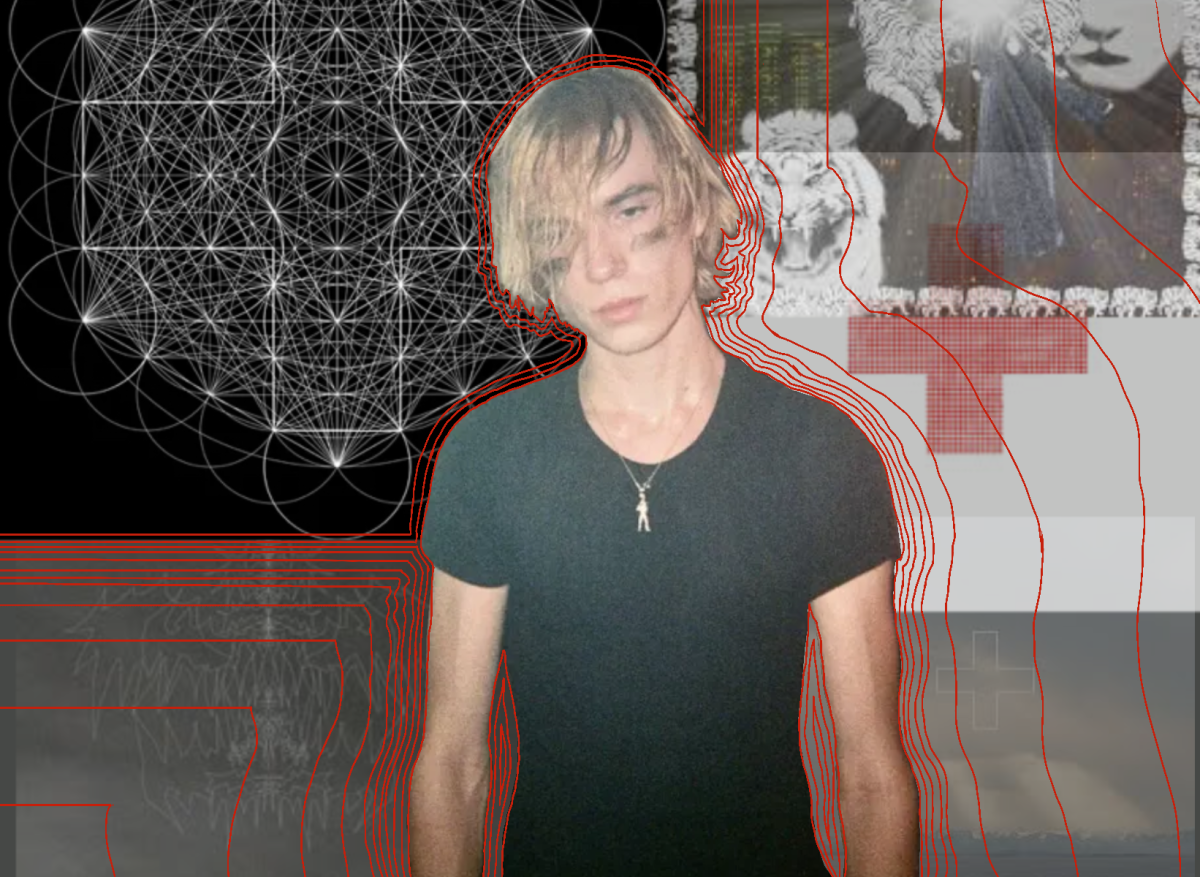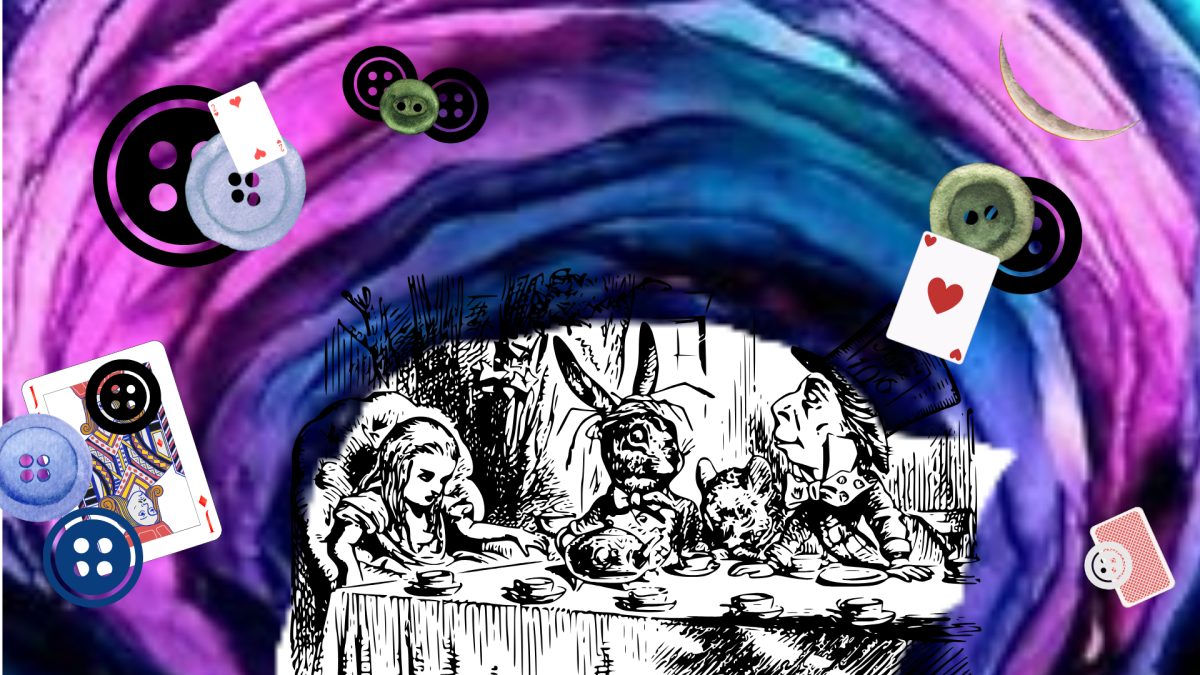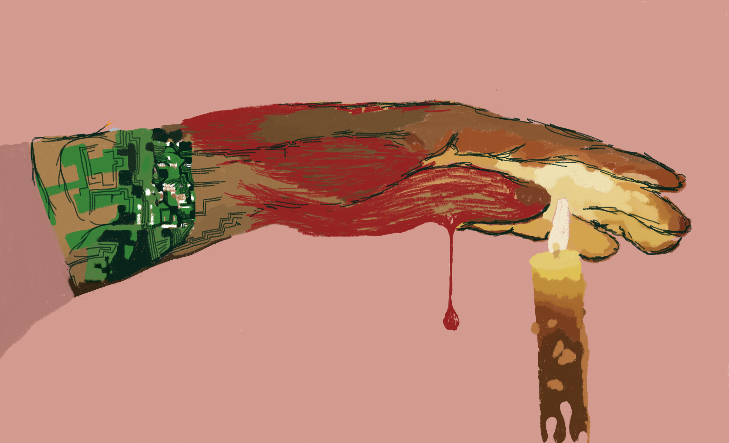By now, Billie Eilish is no stranger to rebranding. The pop artist, who’s notorious for her urban, baggy outfits and edgy music persona, ditched that and her iconic green-black hair this year. The purpose, Eilish said, was to reclaim herself and her body, something often exploited by a sexist and abusive music industry and society as a whole. With fame and critical acclaim for her earlier album, Eilish is certainly more comfortable now — even among false rumors about her wishing to be poor. And on “Happier Than Ever,” her sophomore full-length album, she completely embraces that new persona: bold and successful, but nevertheless facing conflict.
Identity is a central conflict for Eilish, with the singer conflicted over her newfound financial security and tumultuous personal life. In tracks like “Getting Older” and “my future,” she’s hopeful about her future, albeit with the sobering thought that fame has complicated her world. While she never name-drops the famous sociologist Charles Cooley, Eilish similarly reflects on herself from society’s own reflection of her persona.
She does, however, reference Cartesian philosophy in the TikTok-famous track “Therefore I Am,” full of bravado as she cuts off clout chasers who try to associate with her solely for her fame.
“Happier Than Ever” is full of these moments, where Eilish openly tackles her newfound interests and sounds. On “GOLDWING,” Eilish begins with a hymn from Gustav Holst’s “Choral Hymns for the Rig Veda,” manifesting an ethereal choir before plunging back to her signature lo-fi sound. “Billie Bossa Nova,” a track where Eilish discusses her experiences dodging the paparazzi, coyly tries out traditional Brazilian songwriting. “Oxytocin” sees Eilish channel her experiences with abuse over industrial techno, in a beat reminiscent of Yoshitaka Hirota’s eerie “Deep in Coma -minimal work-” remix.
“Happier Than Ever,” despite the title and its moments of well-earned cockiness, is an album full of grief and longing. “OverHeated” directly references her experiences with body shaming after paparazzi shot photos of her in a tank top, and tracks like “Your Power” and “Oxytocin” directly explore abusive relationships and sexism. “Not My Responsibility” is spoken poetry, with the singer directly talking about her experiences with body dysmorphia and sexism.
It’s no surprise that with the almost complete rebrand Eilish had earlier this year, “Happier Than Ever” sees the singer explore new sounds and genres. But Eilish never quite abandons her signature sound, with her brother FINNEAS still working closely on the album’s production. While the album thankfully never feels like a compilation of “When We All Fall Asleep, Where Do We Go?” B-side tracks, it’s not heresy to say that tracks like “I Didn’t Change My Number” are continuations of her crunchy, dark beats and whispery vocals.
That’s not to say “Happier Than Ever” doesn’t have the production flaws of “When We All Fall Asleep, Where Do We Go?” either. There are moments where the album’s minimalist production works against Eilish, particularly in jazz-inspired tracks such as “Lost Cause” and “my future.” Eilish never truly ventures off into a completely new genre, nor does she completely reinvent the pop sphere. It’s good music, don’t get it wrong, but it’s nothing particularly groundbreaking for all the different genres she tries out, or even the “dark pop” Eilish pioneered earlier in her career.
Despite all the naysayers on TikTok, Eilish is not in her flop era yet, but she certainly isn’t pioneering the pop spotlight either. While nothing new or groundbreaking was served, it cannot be denied that Eilish is not going away anytime soon. “Happier Than Ever,” if anything, serves as Eilish securing herself in the music sphere, an industry she herself croons warily that “someday, I’ll be bored of.”














